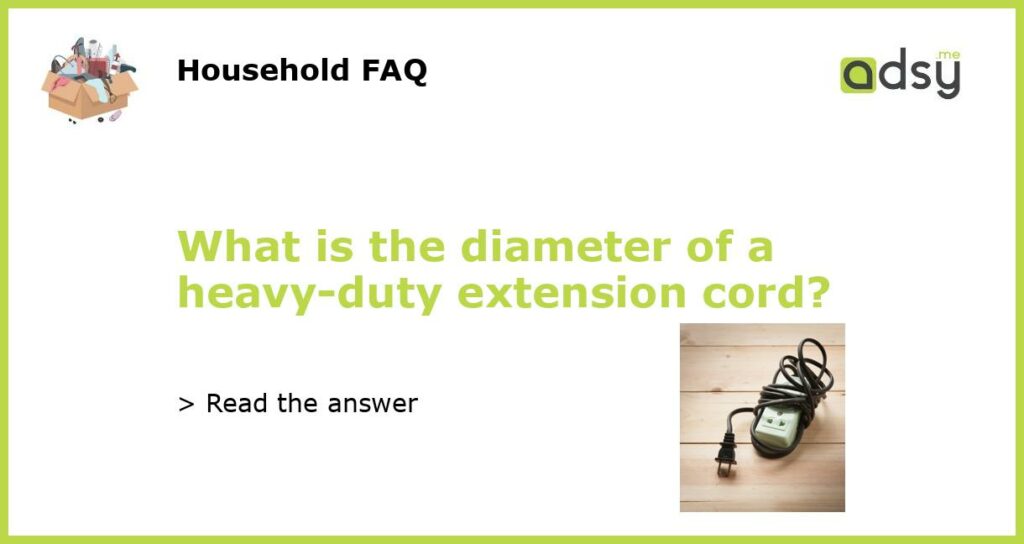Understanding the Diameter of a Heavy-Duty Extension Cord
Extension cords are essential components in powering up various devices and tools, especially in industrial and construction sites. However, not all extension cords are created equal, particularly in diameter. The diameter of a heavy-duty extension cord is critical in determining the amount of electrical current that can flow through the wire. In this article, we will explore the importance of extension cord diameter and how to choose the right one for your needs.
Why Extension Cord Diameter Matters
The diameter of an extension cord plays a crucial role in determining its capacity to conduct electrical energy. The smaller the diameter, the higher the resistance, which results in voltage drops that can damage your equipment or reduce its power output. In contrast, a larger diameter cord can handle more current flow, reducing the risk of voltage drops, overheating, and damages to your devices.
How to Choose the Right Diameter Extension Cord
When choosing an extension cord, it’s essential to consider the length of the cable, the power capacity of your device, and the required voltage. Typically, a 16-gauge cord is suitable for light-duty applications such as powering lamps or charging small devices. A 14-gauge cord is ideal for lawn mowers, hedge trimmers, and other similar equipment, while a 12-gauge cord can power heaters, air conditioners, and power tools that require higher wattage. For heavy-duty applications such as welding machines or large compressors, a 10-gauge cord or thicker is recommended.
Other Factors to Consider When Choosing an Extension Cord
The diameter is not the only factor to consider when choosing an extension cord. You should also look into the type of insulation, the length of the cable, and the plugs and connectors. Cheaper extension cords may have thinner insulation that can wear out quickly or crack, exposing the wires and increasing the risk of electric shock or fire. A longer cable can also result in voltage drops, diminishing the power output of your devices. Lastly, choose plugs and connectors that match the power supply and the outlet, ensuring a stable and secure connection.
Choosing the right diameter of the extension cord is crucial for safety, efficiency, and longevity. Always consider the requirements of your devices and the working environment when selecting an extension cord. Remember that thicker is better, but it also means heavier and more expensive. Invest in high-quality extension cords from reliable suppliers such as Home Depot, Lowe’s, or Amazon to ensure optimal performance and reliability.






